2026 Author: Erin Ralphs | ralphs@carsalmanac.com. Last modified: 2025-01-22 21:14:11
Automatic transmission - a wonderful invention of mankind! Eliminates the need for the rider to juggle three pedals, self-adjusts torque fluctuations and shifts gears.
Automatic transmission
The most common and reliable are hydromechanical "machines". They were invented in the USA in the early 30s. Main components of the box:
- planetary gears;
- hydroblock;
- torque converter (clutch).

Not everyone goes into details - what happens there when the accelerator or brake pedal is pressed. The driver is guided by the dashboard readings:
- In the neutral position of the automatic transmission selector, the "N" indicator lights up.
- Reverse engaged, "R" on.
- Move forward - "D".
Selector selector
In order for the car to understand what the driver wants from him, an automatic transmission selector position sensor is installed in the box. It transmits data to the box controller, is responsible for turning on the reverse signals and controls the starter drive. As a rule, it is located on the shaftgear lever.
A faulty automatic transmission selector sensor leads to incorrect operation of the box (it turns on the emergency mode) or the car does not move at all.
If the "HOLD" indicator lights up on the dashboard, the sensor is faulty. Common causes:
- The contact wires are being erased. The sensor wiring is too close to the automatic transmission selector. The constant switching of modes deforms the already thin wires.
- After removing the box, the sensor contact was connected badly or not connected at all (forgotten, and this happens).
- No crankcase protection - no sensor protection from dirt and water. It is enough to drive through a small puddle so that water gets on the contacts.

What caused the malfunction in a particular case, computer diagnostics and visual inspection will tell.
Automatic transmission selector

The gear lever is a kind of way for the driver to communicate with the car. With each new car model, it improves more and more and, in addition to the main handle, it slowly acquires buttons for additional features and indicators.
The location of the lever varies depending on the machine model. In modern cars, a steering column arrangement is also common in the center of the dashboard (if the driver's seat is high, then on the console).
To prevent accidental switching between modes, a button is provided on the selector. It is located on the side, top or front. As long as it's not pressedyou cannot change the range of the lever. The stepped slot for moving the selector also prevents unnecessary range switching.
In the stalk version, the lever can be moved after the driver pulls it towards him.
Repair selector
Incorrect operation of the gearbox can be caused not only by a problem with the sensor, but also by malfunctions in the selector system. For example, the thickening of the lubricant leads to the fact that it is difficult to start the car on a frosty morning or range changes are accompanied by jerks and jerks.
Incorrect mode switching (often happens to drivers accustomed to a manual transmission), aggressive driving style, reverse gear or parking to a complete stop of the car - all this affects the operation of the selector and disables it.
How to clean the selector yourself
Before surrendering to the mercy of the service station mechanics, you can inspect the unit in a garage.

Dismantling:
- Before removing the selector, be sure to mark with paint the location of the parts in relation to the box block and the moving part of the selector.
- Remove the battery tray, air filter housing and, if available, the cruise control vacuum pump (unscrew the 8" bolt and remove the mustache from the groove).
- Snap off the shift cable from the washer and axle, then remove it, but it's better to do this together with the traction.
- Without effort, unscrew and remove the 13" nut from the splines of the shaft. We'll have to shake it a little andpry off (but very carefully).
- Since there are a lot of connection wires, you can clean the selector without turning them off completely, that is, on the spot. We remove the connector with the main harness (we unscrew the two 12" bolts). You can also remove the other two by completely disconnecting the selector, but you must take into account the condition of the wires and the ability to get to the connector (one of them is connected under the box).
- Remove the wire cover (it is held on by two screws), slightly prying it with a screwdriver.
- We disassemble the selector itself - unscrew 4 screws. Open it up.
- The main thing is not to lose 3 contact crackers and 3 springs (one of them is double).
- Wash off the old grease with gasoline. Selector contacts should be cleaned well with kerosene and WD40. If the dirt does not wash out, you can use fine polishing sandpaper and an ink eraser.
- Apply silicone grease.
- Assembling everything in reverse order, remembering to match the labels.
After this procedure, the selector should work normally again.
Replacing the automatic transmission selector
After cleaning, the opposite situation may occur - the box will continue to act up. If the malfunction indicator is still on on the dashboard, you will have to go to a car service and trust the professionals. With the help of computer diagnostics, the mechanic will identify and, if possible, eliminate errors.
Replacing the selector is a last resort. It is resorted to when repair is impossible or there are no spare parts for replacement. For example, in the event of a mechanical failure of the lever, its attachment bases (the pin is metal, but whenyou can bend or break it if you wish).

There is a used selector for older cars. Buying a new one, installing it and setting it up will cost the car owner quite a lot.
Conclusion
The automatic transmission selector is a rather fragile thing. Timely oil change and diagnostics, accurate switching of modes, the presence of protection and a casing will help to avoid unnecessary financial costs. Good luck!
Recommended:
Automatic transmission - how to use? Automatic transmission switching and control modes
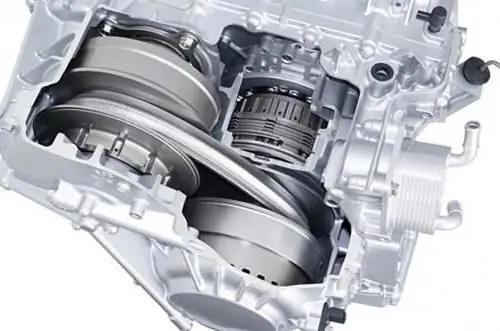
Today, many novice drivers, and motorists with experience, choose a car with an automatic transmission. Beginners are often afraid of the very need to shift gears while driving, experienced drivers have appreciated the possibilities of calm and measured movement in a car equipped with automatic transmission
The automatic transmission device of a car and the principle of operation. Automatic transmission types
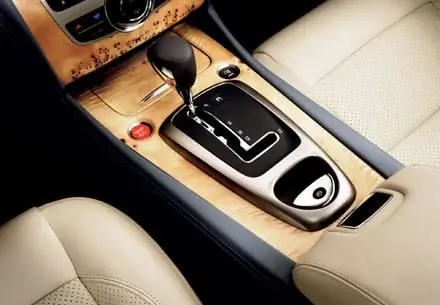
Recently, automatic transmissions are gaining more and more popularity. And there are reasons for that. Such a box is easier to operate and does not require constant “play” with the clutch in traffic jams. In large cities, such a checkpoint is far from uncommon. But the automatic transmission device is significantly different from classical mechanics. Many motorists are afraid to take cars with such a box. However, the fears are not justified. With proper operation, an automatic transmission will last no less than mechanics
Automatic transmission: oil filter. Do-it-yourself oil change in automatic transmission
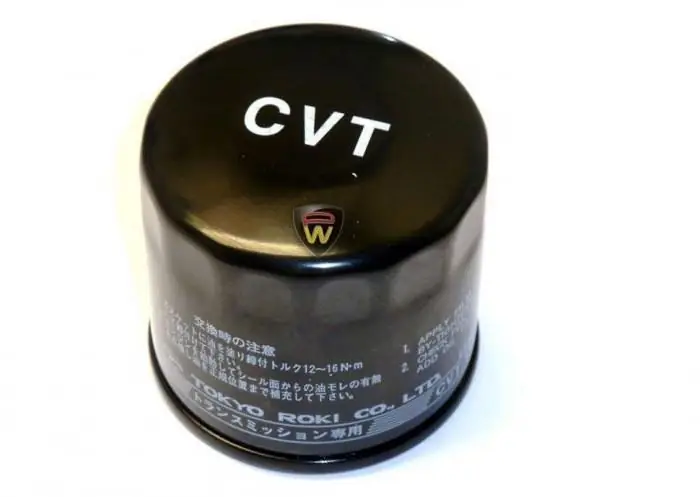
Modern cars are equipped with different gearboxes. These are tiptronics, CVTs, DSG robots and other transmissions
Do I need to change the oil in the automatic transmission? Description of the automatic transmission, timing and method of oil change
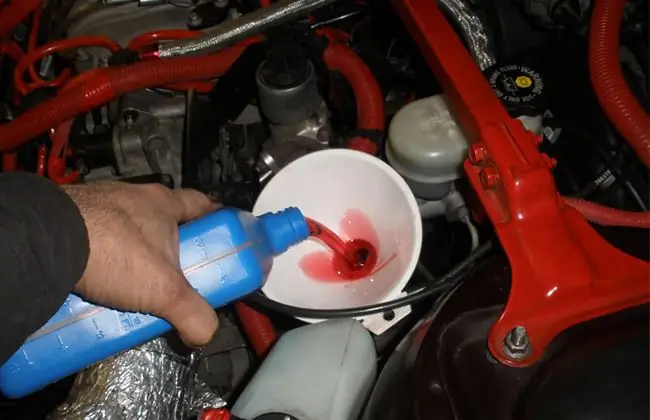
Automatic transmission is the second most popular. But nevertheless, this gearbox is gradually replacing the mechanics, which so far occupies a leading position. Automatic transmission has a number of advantages, the main of which is ease of use
How to check the oil level in automatic transmission? Oil for automatic transmission. Oil dipstick
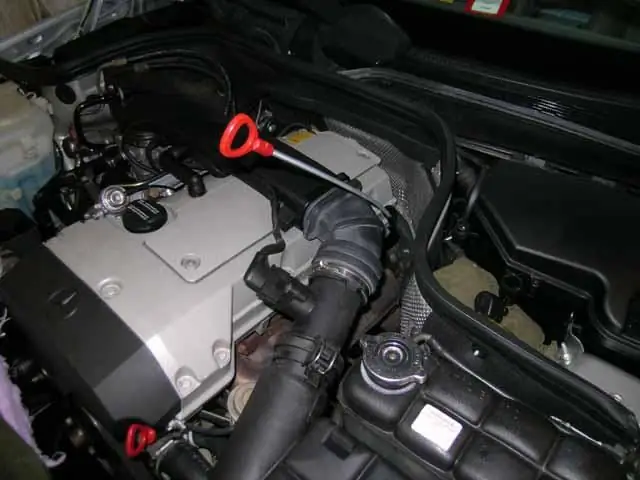
In this paper, the question is considered: "How to check the oil level in automatic transmission?" And also directly with the help of which the oil level in the automatic transmission is checked. Tips are given on the selection of oil, instructions are given for changing it yourself

